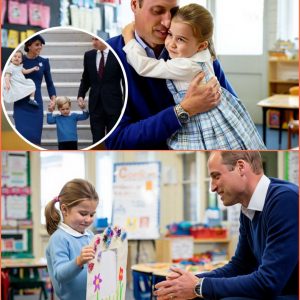OPINION: This article may contain commentary which reflects the author’s opinion.

For an artist who has sold over 75 million records and won five Grammy Awards, Michael Bublé’s brand is built on supernatural smoothness. His performances—perfectly tailored suits, effortless banter, and a voice that glides through swing and pop standards—are a masterclass in polish.
But for some, that perfection can feel calculated. This sentiment was captured recently when an audience member on X (formerly Twitter) remarked: “Bublé sings well but looks like he is in a commercial.”
The criticism, which implies his stage presence is “unnatural” or “robot-like,” struck a nerve with the one person who knows him best: his wife, Argentinian supermodel and actress Luisana Lopilato.

In a candid and personal defense on her Instagram story, Lopilato offered a rare glimpse behind the curtain of their family life, directly contrasting the “robot” critique with the man she knows at home.
“You only see him on stage,” Lopilato wrote. “At home, he sings lullabies to his children in a hoarse voice, dances with the kids in the kitchen. That is the real Mike.”
Her post concluded with an emphatic declaration: “He is the most real man I know!”
A View from Behind the Velvet Rope
Lopilato’s defense is uniquely positioned, as her relationship with Bublé famously began on the set of one of his most polished productions. In 2009, she starred as his love interest in the blockbuster music video for his hit single, “Haven’t Met You Yet.” The video, directed by Rich Lee, is the epitome of the slick, commercial-style Bublé his critics point to.
Their on-screen chemistry proved genuine, leading to a marriage in 2011 and a family of four children: Noah, Elias, Vida, and Cielo.
Lopilato’s description of Bublé singing in a “hoarse voice” paints a powerful picture. It suggests a man who gives his flawless, professional instrument to massive audiences during grueling world tours, reserving his raw, tired, and “real” voice for the audience that matters most: his children.
A Career Defined by a “Real” Choice
The “robot” criticism also overlooks the most significant and “real” event in Bublé’s public life.
In 2016, the couple’s world was shattered when their eldest son, Noah, was diagnosed with hepatoblastoma, a form of liver cancer. In response, Bublé and Lopilato immediately and completely halted their careers.
This was not a calculated PR move; it was a raw human reaction. Bublé, who was at the peak of his career, cancelled his hosting duties for the Brit Awards and cleared his entire schedule indefinitely. He later told media that he and his wife had “pulled our kids out of school” and moved to be by their son’s side, admitting he “did not know” if he would ever return to music.

That period of intense crisis, which ended when Noah thankfully entered remission, showed the world a side of Michael Bublé far removed from the polished performer. It revealed the “real Mike” that Lopilato described: a father who dances in the kitchen and who was willing to let his entire global brand “fall apart” for the sake of his family.
Lopilato’s message is clear: the flawless performer on stage is a professional at work; the “real man” is the one who shows up at home when the spotlight is off.





